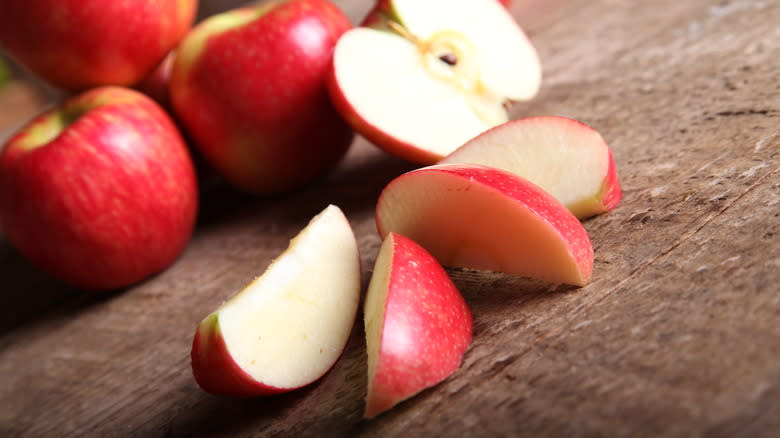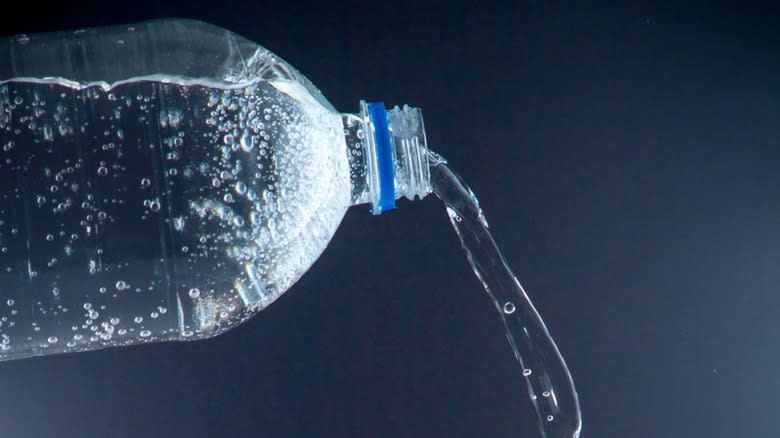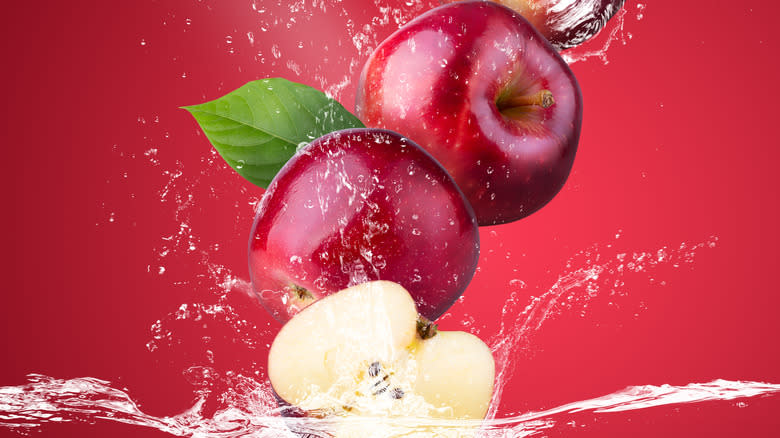The Seltzer Hack Perfect For Keeping Apple Slices From Turning Brown

We may receive a commission on purchases made from links.
Apple slices are a delicious snack, but this all-natural sweet treat can start turning brown as soon you cut the fruit and expose the flesh to air. A little discoloration wouldn't be all that bad on its own, but the browning also often comes with mushiness, which crosses the line and can make it hard to enjoy your apples. Luckily, there are lots of tricks to try that can keep your apples firm, white, and tasty for longer, with no browning in sight.
There are all sorts of methods that some people swear by to prevent browning, from dousing cut apples in lemon juice to coating them in sugar or honey. These methods are fine if you don't mind any added tartness or sweetness, but if you want to enjoy your apples as they are, there's one freshness-keeping secret that you may not know about. You can actually slow the browning of sliced apples by soaking them in carbonated water. Doing so won't change the apple's flavor (assuming you're using plain seltzer), nor will it add extra sugars or acid to the fruit, keeping it in its perfect natural state.
Read more: 12 Vegetables And Fruits That Used To Look Very Different
How Long Should You Soak Apple Slices?

When soaking apples in seltzer, three to five minutes of soaking should be sufficient to slow down the browning process. You can even use flavored sodas like ginger ale or lemon-lime, if that's what you have on hand and you don't mind the added flavor. This preservation method has gained popularity on social media, which prompted Allrecipes to put it to the test.
The popular food site used club soda for its experiment, soaking apple slices for five minutes and then evaluating how well they held up in the refrigerator over the course of five days. The club soda trick kept the apples fresher for longer and passed the test. The site credits the carbon dioxide that gives the soda its bubbles -- as well as the potassium bicarbonate and potassium sulfate added for flavoring -- with the power behind the preservation. Allrecipes also found that club soda worked to preserve peaches and plums, and they recommend using club soda specifically because of the minerals in it mau prevent browning. However, other guides for using this hack use plain seltzer with similar results.
Why Do Apples Turn Brown After They're Cut?

The reason why apples turn brown after being cut has to do with oxidization. When the apple is cut and the interior is exposed to air, oxygen interacts with certain enzymes in the fruit and causes browning. To stop the browning, you've got to stop the oxygen from altering the fruit. That's where the carbonation in seltzer comes in. The bubbles in carbonated beverages come from carbon dioxide, which is known to displace oxygen. This may be bad news in many scenarios, but for preserving fruits, it's definitely a good thing.
In a report published by ScienceDirect, Spanish researchers found that a certain kind of carbon dioxide can hinder the enzymes that cause browning in apples. It's possible that the bubbles in carbonated water could do the same thing. While it might not be entirely clear why the club soda hack keeps apples from becoming discolored, what matters is that it appears effective enough to be worth a try.
Read the original article on Daily Meal.

